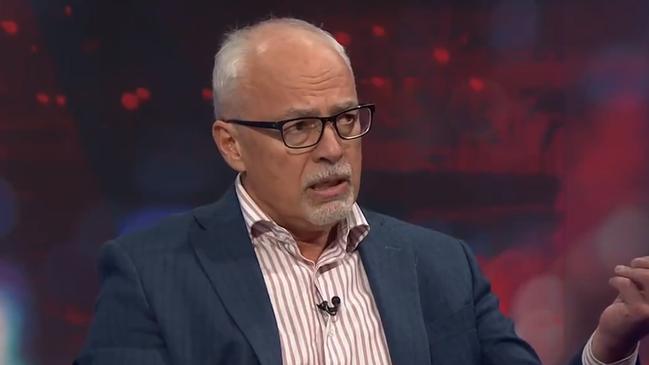QandA wrap: Waiting on COVID-19 vaccine rollout is right call
The QandA panel on Thursday night explored the global approach to the COVID-19 vaccines, and what decisions Australia should make moving forward.

The QandA panel on ABC TV on Thursday night explored the global approach to the COVID-19 vaccines, and what decisions Australia should make moving forward.
The panel consisted of four medical experts from diverse backgrounds who discussed the efficacy and safety of the vaccines, Australia’s approach to the rollout and vaccine hesitancy.
Kicking off the conversation, the group responded to a question regarding the Australian rollout of vaccines lagging behind other countries.
Nick Coatsworth, a federal government infectious diseases adviser, said Australia’s slower vaccine process is due to the country’s privileged circumstance.
“The emergency authorisations in the US and the UK came in early December, and
they are emergency-use authorisations, which is different to what our Therapeutic Goods Administration is looking at,” Dr Coatsworth said.
“We’ve actually seen what we call post-marketing evidence. What is this vaccine, or these vaccines doing in real life? That is a fortunate position to be in for all of us around the world because we can see these vaccines are effective.”
He added that it was “likely” the TGA will approve the AstraZeneca vaccine by the end of February.
Michelle Ananda-Rajah, associate director of the Monash Institute of Medical Engineering, highlighted data from South Africa, which caused the country to pause the rollout of the AstraZeneca vaccine, saying that Australia can “learn” from this evidence.
“For about 1700 young people, who are around 30 years old, it failed. It dropped to an efficacy of 20 per cent,” she said.
“In the people who had that variant which you’ve all heard about, the South African variant, it dropped down to 10 per cent.”
Disputing this point, however, was Sharon Lewin, an infectious diseases expert and director of the Doherty Institute, who pointed out the small number of people participating in the study.
“The South African study had 2000 people in it,” she said.
“The registration studies for most of the vaccines had 30,000, 40,000 people and now 150 million people have received vaccines around the world.”
Professor Lewin said Australia “had backed the right vaccines”, largely due to the advantage of manufacturing the AstraZeneca shot on home turf through CSL.
“We need to be able to manufacture a vaccine. It gives us incredible flexibility knowing that we’ve got a pipeline of a vaccine and we’re one of the few countries in our region that can,” she said.
Professor Ananda-Rajah suggested perhaps Australia should be putting its manufacturing powers towards a more efficacious vaccine.
“CSL can manufacture the Novavax vaccine and that’s been shown in preliminary data to have an efficacy of 89 per cent,” she said. “That does contrast with the AstraZeneca published data which is 62 per cent, 63 per cent.”
“We need to be pulling for the vaccines that have the highest efficacy because all the data is showing us when variants come into play, particularly from South Africa, your efficacy drops.”
When discussing public hesitancy towards taking the vaccine, Tony Blakely, an epidemiologist and public health medicine specialist at the University of Melbourne, said: “It’s inappropriate to vaccinate somebody against their will.”
“I think we should encourage people and rely on voluntary uptake,” he said.
Professor Lewin agreed with him, saying it is more important to educate people about the vaccines than force them to take them.
“Do we have to vaccinate every single person in the country to have a major effect on saving lives and reducing transmission? No. But we have to get it up really high,” she said.
Dr Coatsworth added that he did not think there would be professional consequences for someone who chose not to take the vaccine, but that businesses should “convince” their employees that the vaccine “is good for them”.
The panel touched on the role politicians and celebrities play in discourse surrounding the vaccines, with all members agreeing that if the person does not have a medical licence, their advice should not be trusted.
“You’re talking about the problems of misinformation and selective digestion of what’s out there and making a very strong conclusion,” Professor Lewin said.
“Craig Kelly can’t prescribe hydroxychloroquine and you won’t get a single doctor around the country that will do it but it does spread misinformation and promote fixed beliefs.”
The group clashed when briefly discussing the latest outbreak at Melbourne’s Holiday Inn.
Dr Coatsworth said there is a “live debate” about the extent to which COVID-19 is transmitted via aerosols, while Professor Ananda-Rajah said there was no debate at all.
“There has been clear and compelling evidence from the start of this pandemic,” she said.
“We’re 14 months into this and we’ve had real lack of movement on acknowledging the fundamentals of disease transmission. If you don’t acknowledge that this is spread through the air … then I can’t prevent it.”




To join the conversation, please log in. Don't have an account? Register
Join the conversation, you are commenting as Logout